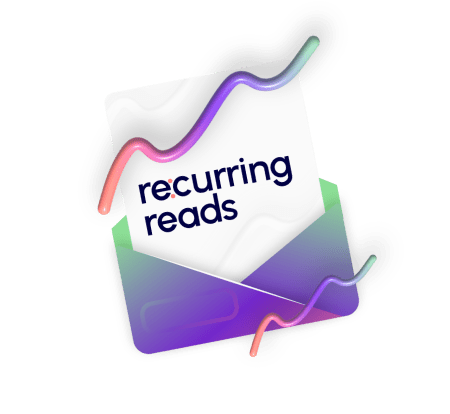Time to Give up a CRM and adopt a Customer Success Solution for Successful Client Management
If you’re a SaaS provider or user, you’d know that your business is only as good as the tools you sell or use. The software marketplace is always in flux, with newer customer success solution just a click away. This means customers no longer have to be bound to one organisation, and e

If you’re a SaaS provider or user, you’d know that your business is only as good as the tools you sell or use. The software marketplace is always in flux, with newer customer success solution just a click away. This means customers no longer have to be bound to one organisation, and even if they have a long-term contract, they don’t necessarily have to use your products or recommend them. They’re committed to you only so long as you deliver value.
These changes have made it imperative for B2B software companies to adapt quickly to customer demands and deliver continuous user value. Not only that, customers now thirst for more information, speed and efficiency. They want their needs anticipated and service prompt so that they can fully remain in control of their investments.
But it’s also true that the impatient and busy millennial customer understands technology and knows that a good app or software is all about is ease of implementation and adoption. This means the SaaS providers must not care only about their product but also about the success of the customer using their product or service. It was at this turn that the phrase ‘Customer Success’ over took ‘Customer Relationship Management (CRM)’ and became buzzword that drove SaaS businesses.
Why CRM is not a good Customer Success Software?
CRM did very well to help companies track their customers, collate data and use them to achieve their goals. But the newer way of selling SaaS, the emphasis it lays on Product Led Growth, and the way data is used to offer intuitive solutions for the customer, taking customer success to a greater height, makes CRM an outdated tool. So, if you want your users to believe CX is what you swear by, then time to pack up CRM let an intelligent client management software take over.
CRM versus CSM Solutions
- CRM is just a database where you store customer relationship information – and use it to maximise conversions. It requires a set of manual activities or data inputs by sales personnel to establish a workflow. This is what makes CRM a good sales pipeline manager – because every buyer will have a similar purchase journey.
- This where client management software, (AKA customer success solution) or platform takes over. CS platforms work at retaining the customer after the purchase via various modes of engagement that up the value of your product, by collecting customer data and analysing them.
- The one radical difference between CRM and CSM is in what they do with the collected data – where CRM acts as a repository, CSM analyses this data to help you create multiple journeys for the customer by engaging with them actively, anticipating their needs and egging on customer success.
CRM’s limitations
- The most common question asked: Can CRM be used as a Customer Success platform? Why can’t CRM be upgraded to CS – after all, it’s just the addition of some AI tools, right? Wrong. Well, of course, you can use CRM for client servicing, but it won’t be a brilliant one, at par with the demands of today’s customers.
- That’s because CRM was built with a different approach and scope in mind (and it did brilliantly at that, transformed businesses, even). But it’s definitely not an intuitive product that will give you actionable analytical insights from customer data. CRMs cannot generate workflows, and will need regular manual intervention. This becomes a hurdle when you look at automating processes such onboarding and renewal.
- CRM was not built for integration with current methods of product usage, and exported data, and will require manual inputs – this means automated dashboards and reporting that follows the lifecycle of a customer will be difficult to create. It will also mean the success of your CS team depends, by and large, on your IT team.
- Speedy and efficient analysis of data is not a CRM strong point – it is designed for maintenance of data integrity and quality. So real-time analysis of customer data for actionable insights is a tough call for CRM.
- CRM is a repository of customer information, so it can provide excellent data about sales pipelines, but it cannot deliver the intuitive requirements of the customer success team.
Where Customer Success Solution score?
Automation and management
CS platforms are designed around the workflows required by your CS team to succeed, and require minimal manual input. The compute and help you to engage with the customer at various levels throughout the customer’s lifecycle by organising and automating processes for increased efficiency and speed.
Scalability
It helps you scale up and upsell, reducing churn. Customer Success platforms also help you scale your workplace and team by giving them information they need such as customer escalations, usage patterns, tracking renewals, etc., on a daily basis. Good CS platforms can help your CS team almost think like your client with tools dashboards and real-time alerts to manage their accounts. Once manual processes are reduced, your CS employees can concentrate on creating a fabulous customer experience for the client. Having a pulse on the customer helps scale up productivity and revenue.
Data analysis and insights:
Constant monitoring of customer data, AI, and analytics help you get data insights alert you to customer trends that helps your CS team have a dynamic and proactive go at customer management.
Dashboards and reporting
Client management software are designed to map customer’s entire lifecycle. Using data, both generated and sourced, they can generate quick, error-free reports and dashboards with almost zero human intervention. They can make intelligent computations using the data collected and give your CS team an intuitive edge when it comes to delivering ongoing value.
Conclusion
So, a Customer Success Solution can be a good value addition to your CRM, and can help you focus on nurturing the customer right from his transaction stage to his entire journey with you, delivering continuous value at every step of his journey. Where CRM’s traditional tools lack the intelligence to aid your long-term vision, a Customer Success Platform can help you turn your customer service from a cost centre to a source of revenue and business growth.












